7 Step Guide To Fix Sleep Schedule and Reset Circadian Rhythm
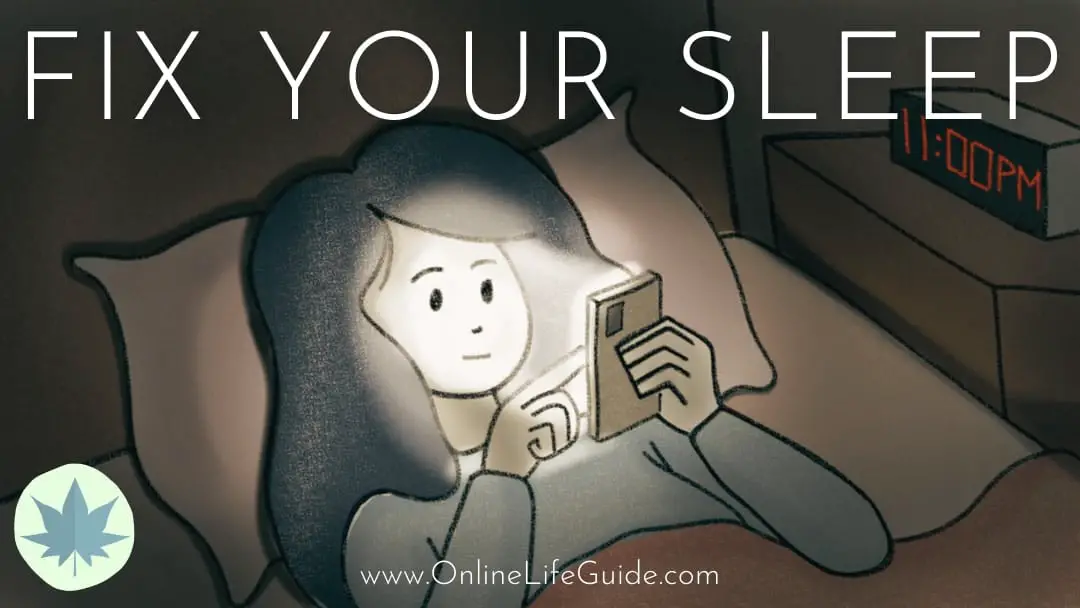
One of the major obstacles that stand in the way of a productive lifestyle is a messed-up sleep schedule. Trying to fix your sleep schedule can be quite frustrating at times, I know, I’ve been in your shoes! In this guide, we’ll take an in-depth look into how exactly you can fix your sleep cycle and reset your circadian rhythm.
We spend one-third (⅓) of our lives sleeping. There is a good reason why we spend such a big chunk of our lives in sleep.
During sleep, we not only recover and heal physically but also mentally. Our mind filters out, reorganizes, saves, and deletes tons of data we take in during our waking hours.
This is the reason why 3 to 4 days of total sleep deprivation can cause a person to act crazy and even hallucinate.
Since it is such an important part of our lives and contributes greatly to our optimal performance and productivity, we must take our sleeping routine into careful consideration so that we can make the most out of it.
The reason I chose to write this article is that I was a night owl for the first couple of decades of my life. Studying in an afternoon school and then later on working independently mostly from home did not turn out well for my sleep routine. It was all over the place, (and sometimes it still gets all over the place when I’m not careful, but now I can fix it within a couple of days using the strategies in this guide).
Apparently there’s a thing called “sleep hygiene”. Weird I know. I wasn’t aware of it either. Sleep hygiene basically refers to the healthy habits, behaviors, and environmental factors that you can adjust to have a better sleep experience, essentially improving your sleep quality.
After some online research into sleep science, watching some scientific documentaries on sleep, and years of trying different methods, I finally came up with a solid plan to have better sleep hygiene to fix the Circadian Rhythm.
What is Circadian Rhythm?
Is there a certain time when you feel tired and drowsy, and want to go to bed? And is there a time of the day when you feel fresh and alert?
That’s your circadian rhythm.
Circadian Rhythm is simply your sleep/wake cycle. It determines the time of the day your mind and body feel the need to sleep and the time to be wide awake and alert.
It is also referred to as our “Biological Clock” because it functions like a clock within our body knowing exactly when to be active and when to rest.
One of the factors that hugely affect this biological clock (our circadian rhythm) is exposure to light.
Before electricity and artificial lighting, the only bright light source available to humans was the sun. The sleep cycle of most people was naturally synced with the cycle of the sun.
Simply put, people used to set and rise with the sun.
That is the routine nature intended for us and that’s how we are designed to be. Being in sync with nature is the most harmonious thing you can do for your mental, physical, and spiritual health and well-being.
Bright artificial lights at night, trick and confuse our minds into thinking that it’s still daytime.
And since we spend most of the nighttime with lights on, we get a very small amount of time in the dark, until the sun rises and it’s daytime again.
Note that, resting in complete darkness is essential for our health and well-being. We do not get quality rest if we sleep during the daytime.
How Much Sleep Do You Need?
An average person needs somewhere around 6-8 hours of good quality sleep.
If your routine is physically very demanding and your lifestyle revolves around physically challenging tasks or if you are an athlete and you workout hard, you might need a solid 8 hours of slumber.
If your lifestyle is not physically demanding, 6-7 hours of quality sleep might suffice you.
Keep in mind that it’s the “quality” that matters most. You might still feel tired and unfresh after sleeping for 8-9 hours if your sleep quality was poor. Whereas, a 6-hour good quality deep sleep can keep you fresh and active for the rest of the day.
How to improve the quality of your sleep you might ask?
In this guide, apart from “7 Steps to Fix Your Sleep Schedule”, we’ll also look into “5 Ways to Improve the Quality of Your Sleep”, so hang in there!
7 Proven Tips to Fix Your Sleep Schedule and Help You Sleep Early
If you want to wake up early, you’ve got to fix the time you fall asleep. Now, I can feel you rolling your eyes and be like ‘Wow Faraz, what an eye-opening revelation, thanks for the “help”.’
No really, this is the only secret to waking up early and also the biggest problem most people have when they try to fix their sleep cycle. THEY CAN’T SLEEP EARLY.
One of the most common complains I hear is “I find it difficult to fall asleep, I tried going to bed early several times but I just can’t fall asleep.”
Well yes, this is one of the obstacles you must overcome, and this guide is all about it!
Personally, I too faced the same challenge of not being able to fall asleep early until I did some research, and tried and tested many things, of which I’ll share with you the ones that are scientifically proven and helped me fix my sleep schedule.
I have made these tips regular habits in my daily life and I encourage you do the same.
1) Stop Caffeine Intake 8 Hours Before BedTime
Studies have shown that caffeine can remain in your system for around 8-9 hours, keeping your brain alert.
You might still manage to fall asleep after a couple of hours of having your tea/coffee, the problem is, caffeine will still be running through your blood which may not let you fall deeper into sleep, thus drastically affecting the overall quality of your sleep.
This study posted on the National Library of Medicine, states that caffeine intake even 6 hours prior to sleep can disrupt your sleep significantly and can reduce your sleep by an hour! It also states that if this degree of sleep loss continues for several nights, it can have detrimental effects on your daytime function and activity.
Hence, to improve the quality of your sleep so that you can get the most benefit out of your sleeping hours and wake up fresh in the morning, make sure you reduce your overall caffeine intake and especially avoid it at least 8 hours before your intended bedtime.
2) Dim the Lights in Your Surroundings After Sunset
Another study done on the effects of light on our circadian rhythm (sleep cycle) suggests that exposure to artificial lighting including smartphone screens and LED displays can delay our circadian clock, which means delayed sleep.
The light from the screens can interfere with the physiological processes happening within our bodies to the point that it disrupts the secretion of Melatonin (the hormone responsible for making you fall asleep. Whenever you feel sleepy, it’s because of melatonin secretion).
Artificial lights trick our brain into thinking that it’s still daytime so it stays awake and alert.
If you want to reset your circadian rhythm and align your routine with nature, dim the lights around you after sunset. Turn off any bright lights and reduce the brightness of your phone/computer/television screen.
Color Temperature of Lights Also Affect Your Sleep
One more thing to keep in mind is that white/bluish light influences our brain to be more alert, while dim yellowish light is a bit easier on the eyes and has a soothing, relaxing effect.
The color temperature of lights can have a significant effect on your sleep. This Study suggests that lights with higher color temperature i.e bright bluish lights can suppress the secretion of melatonin (sleep hormone), as compared to lights with lower color temperature i.e dim yellowish lights.
So make sure you have some dim warm lights that you can turn on after sunset instead of the bright white lights.
If you observe nature, you’ll notice that the sky is mostly bright and bluish in the morning, signaling our brain to awaken and be alert. While it’s often yellowish/orange in the evening, encouraging relaxation and sleep.
There are built-in options nowadays within computers and smartphones to automatically turn the screen’s color temperature warm in the evening, and it’s there for this exact reason. Make sure to use this feature to your advantage.
3) Stop Using Your Phone And Social Media 1-2 Hours Before Bedtime
Many of us have the habit of using our phones while laying in bed just before going to sleep. Facebook, Instagram, Whatsapp or Youtube (sigh… or TikTok) is usually the last thing many of us see at night, and the first thing we see after waking up, not realizing how badly it’s affecting our overall sleep quality.
Using our phones and especially using social media gets the brain into overdrive. Every post, message, photo, video, or thumbnail is a piece of information that our brain has to process which means more brain activity. Let’s not forget the exposure to bright artificial light right in our faces. It’s a double whammy against a deep, restful slumber that we all desire and need.
It’s important that you reduce your brain activity and wind down a couple of hours before bedtime so that you get a good quality deep sleep.
Ideally, avoid any exposure to social media at least 1-2 hours prior to sleep and keep your phone away from the bed.
Set boundaries for your phone usage. Set a time when you’ll be available on your phone and a time when you’ll completely unplug and put your phone on silent (or even turn it off).
Relax and just let go of the urge to check your phone. Messages and notifications can wait till tomorrow. You don’t have to respond to everyone immediately. Value your mental and physical health.
4) Keep the Bed For Sleep Only
Most of us like to eat, watch TV, work, study, or just chill on our beds all the time. If you are having sleep problems, STOP DOING THAT.
Our brain learns to link wakefulness to the bed because of the constant activities associated with the bed throughout the day.
Reserve your bed only for sleep so that you program your mind to relax and fall asleep whenever you hit the pillow. If you do this long enough, laying in bed will become a trigger to put you into a deep sleep in a matter of seconds.
This is one of the top suggestions Sleep Experts give to people who have trouble falling asleep on time or even people suffering from insomnia.
5) Have Bed-Time Rituals To Prepare Your Mind And Body For Sleep
Having some simple bedtime rituals before bed signals our brain that it’s almost time to hit the hay. These bedtime habits serve as an additional trigger to prepare your mind and body, and set the mood for sleep before hand.
Here are a few good examples of bedtime habits that’ll help you relax and wind down:
- Take a warm relaxing bath
- Have some warm milk
- Clean and prepare your bed for sleep
- Relax and slow your body movements down (avoid any physically or mentally active/challenging task)
- Begin to talk softly
- Lessen your interaction with other people
- Read an easy, relaxing kind of book
- Do Wudu
6) Don’t Take Any Naps Once You Wake Up
Generally it’s a good idea to take a 15-20 minutes power nap around noon. However, initially when you are trying to make a habit of sleeping early, I would recommend that you DON’T, because in the first few days of trying to fix your sleep cycle there’s a good chance that you’ll over-sleep and those 20 minutes might turn into 3 hours
No matter how much drowsy you’re feeling, wait for your intended bed-time. Else it will be harder to fall asleep early if you usually have trouble falling asleep on time or do not have the habit of sleeping early.
7) Don’t Skip Weekends
For most people, their usual sleep routine goes out of the window on the weekends. Late night hangouts with friends, dinner with family, movie nights, you name it.
As you are in the process of building this habit of sleeping early, you must remain consistent for at least 4-6 weeks.
I’m not saying that you should stop enjoying your weekends, just try to schedule your weekend activities a bit earlier in the day, and give priority to your sleep schedule.
Communicate with your friends and family that you have to get up early the next morning and hopefully they’ll understand and cooperate.
Once your sleep cycle is on track and you develop a consistent pattern of sleeping and waking up early, you can take things a bit easier. You’ll still have to be mindful of your sleep schedule on weekends though, even after you’ve fixed you sleep cycle.
5 Important Tips to Improve the Quality of Your Sleep
Apart from the 7 steps mentioned above, here are some additional tips to improve your sleep quality.
Avoid Having Large Meals At least 2 Hours Before Bedtime
Studies show that eating late at night or right before sleep can disrupt the release of melatonin (sleep hormone) and put you in a wakeful, alert state, not to mention the chances of having an acid reflux (heartburn).
On the other hand, if you’re straving, you’ll find it hard to fall into deep sleep due to the discomfort caused by starvation.
The key is to niether be full nor straving right before bed. That can be done by having your last proper meal 2-2.5 hours before bed.
Avoid drinking too much water
We don’t need scientific studies to know that drinking too much water can cause us to go to the bathroom in the middle of the night. If you have to drink water before bed, drink in small sips not gulps.
Also make sure to go to the bathroom one last time before getting in bed. I’m sure we all can relate to that feeling when we’re trying to sleep but feel like we need to go pee, but not sure if it’s urgent or not, and then we feel too lazy to get up from bed when we were almost about to go to sleep, but then we can’t sleep either cause of that nagging feeling! Yeah, it’s annoying isn’t it!
Make Your Bedroom as Dark as Possible
If you can have pitch black darkness in your room, that would be absolutely ideal and will improve your sleep quality quite a bit. Complete darkness makes it easier to fall deeper into sleep.
Cover the windows to avoid any external light. Sometimes that tiny light on the TV or the laptop can be quite annoying. You can put a piece of tape on any small light on any electronic appliance that might be glowing in the dark.
If for some reason you can’t have complete darkness in your room, you can simply use a blindfold.
Set the right temperature for your bedroom
Your bedroom’s temperature as well as your body temperature plays an extremely important role in the quality of your sleep.
Warmer temperatures usually make it harder to fall a sleep by putting us in a wakeful and alert state (have you noticed that you feel more sleepy during the day in winters as compared to summers).
Cooler temperatures encourage sleep by putting us in a relaxed and comfortable state.
Temperatures around 20°C (70°F) seems to be ideal for more people to get good quality deep sleep.
It’s easier to set room temperature if you have air conditioning. However, if you don’t, here are a few tips you can try:
- Wear wet socks. Yep, wet socks can do wonders. We have a lot of nerve endings and blood flow in our feet. Cooling down the feet can help cool down your entire body. You might even start to feel cold after a few minutes.
- If your room is too hot, make sure to allow cross ventilation through your room by having 2 opening on opposite sides. For example, if you have a window towards the east and one towards the west, open both of them so the air could flow through your room.
- Wear less or lighter clothes during sleep.
- Make sure your bed, pillow and bedsheet aren’t made of warm materials.
Get Some Exercise During the Day
It can be harder to fall into deep sleep if you have too much fuel left in the tank. Burn out that excess energy through exercise during the day (not right before bed), and get yourself tired as you approach the end of your day.
Nothing feels better than when you head hits the pillow when you’re utterly tired and can barely keep your eyes open. Being tired is unsurprisingly one of the secrets to deep, uninterrupted sleep.
Bonus Tip: Use a Melatonin Supplement
(Disclaimer: The links below are Amazon affiliate links which means that when you buy something through them, I might get a small commission without any additional cost to you.)
There are drug free melatonin supplements that you can use to help you fall a sleep if you’re experiencing sleeplessness. It’s not addictive if used in moderation and apparently there are no side effects.
Personally, I’ve tried Nature’s Bounty Melatonin Supplement a couple of times when I was have a really hard time fixing my sleep schedule.
Usually, the tips and strategies I’ve mentioned above have been enough for me to fix my sleep routine whenever it got off track, and I hope it will be enough for you too. But if you still need that extra aid to help you fall asleep faster then a melatonin supplement is far better than other sleep drugs that are addictive in nature and have side effects.
(Just to make it clear, the link above is an Amazon affliate link. If you choose to buy it using that link, I’ll get a small comission with No additional cost to you)
Side Note
You might not experience the benefits of waking up early (such as increased productivity and feelings fresh and enegized) in the first few days of having an early sleep schedule. In fact, when I tell people to wake up early for maximum productivity, the first excuse they put forth is that “Even if I do wake up early, I’ll feel very sleepy and lazy.”
Of course, you will!
You haven’t made it a habit yet. The key is to fix your sleep cycle (circadian rhythm) so that it resets back to its natural state. That will only happen when you sleep and wake up consistently on a specific time for a few weeks until you retrain your mind to sleep and wake up early.
Also, try out these Affirmations to fall asleep fast (COMING SOON).
Conclusion
Being a morning person and utilizing the early hours can add incredible value to the quality of your life. I always encourage people to give it a shot and try this morning schedule for a few weeks.
You’ll be absolutely amazed at how it’ll transform your life for the better and enhance your overall productivity.
Apply these habits and strategies for the next 4-6 weeks and let me know about your experiences in the comments below.

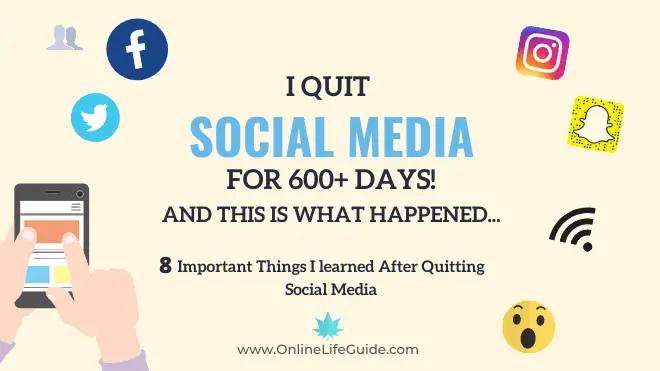

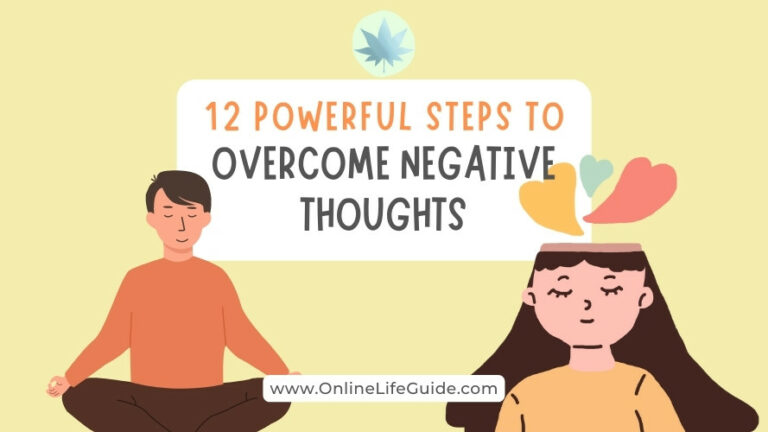
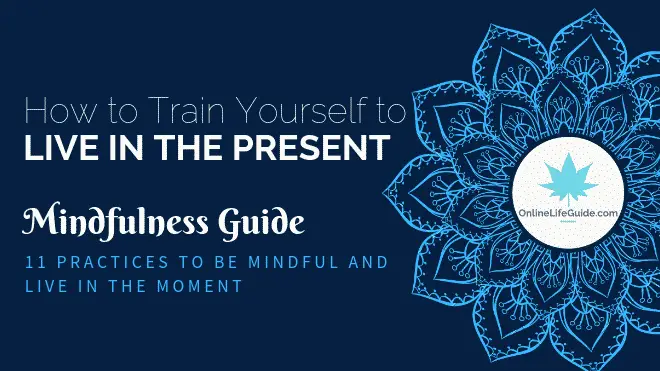
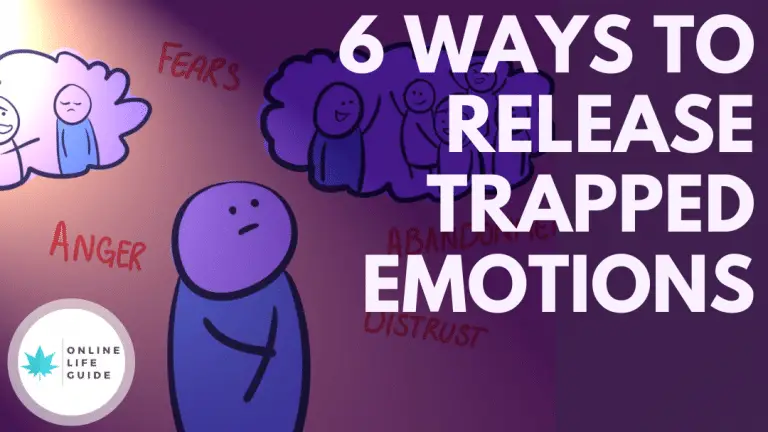

Thank you for writing this article. I’m really struggling with this. I’m going to use this guide to get me back on a healthy sleep schedule. Wish me luck 😝
Hey Melissa, You got this! It can seem difficult at first, especially when you have a messed up sleep routine for years, but it only takes a few days of practicing the things I’ve mentioned in the guide to get your circadian rhythm back on track. Let me know how it goes 🙂